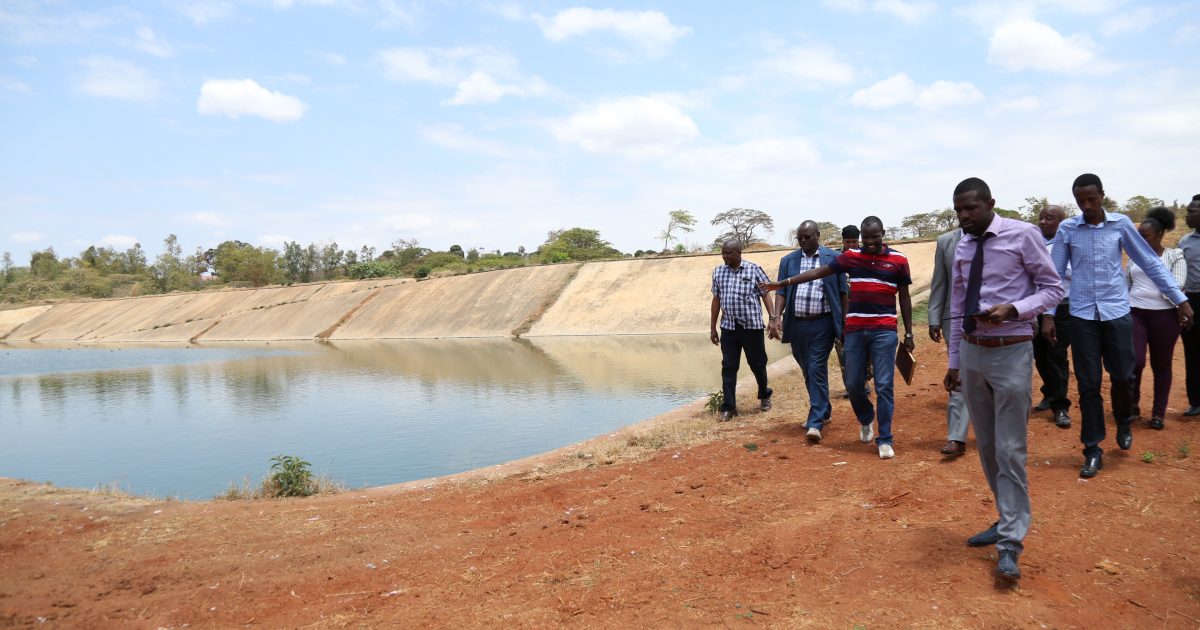The National Environment Management Authority (NEMA) has indefinitely shut down Kitui’s main slaughterhouse due to sanitation and pollution concerns.
The abattoir, which serves hundreds of butcheries within Kitui Town and neighbouring urban centres, was closed following an impromptu inspection by a team of NEMA officers.
Leading the inspection on Monday, the NEMA Deputy Director for Environmental Planning and Research, Dr. Charles Lange said the facility was handling meat under unhygienic conditions thereby exposing consumers to health hazards.
Dr. Lange also put the abattoir management on the spot for reckless disposal of effluent which he lamented had resulted into extensive pollution of the surroundings.
“We have established that the slaughterhouse does not uphold required sanitary standards and has been haphazardly discharging untreated waste into the immediate environment,” he said after serving a notice of closure.
“We have consequently ordered forthwith the cessation of all operations until proper sanitation and waste management measures are put in place,” added the senior NEMA official.
The Kitui County NEMA Director, Njoki Mukiri expressed fears that families residing in adjacent residential plots were at risk of a possible disease outbreak.
“They have been living in a filthy environment and forced to withstand the foul stench from the improperly disposed waste. This must stop,” she emphasised.
The slaughterhouse is managed by the County Government of Kitui.
At the same time, the ballooning population of urban dwellers in Kitui town threatens its sewerage capacity amid concerns of environmental pollution occasioned by uncontrolled effluent discharge.
The County Commissioner (CC), John Ondego has warned that in less than 15 years, the Sh.2.2 billion plant will not sustain effluent discharge from the residents and businesses.
“TANATHI Water Services Board should start its expansion plans in earnest in a bid to stem the illegal effluent discharge into water bodies. The capacity of this sewerage plant will be stretched and there is need to start plans to develop another one,” said Ondego.
The County Chief lamented that concerns about sewage flooding, sewer bursts and the discharge of raw or semi-treated sewage into the environment have made news in the recent past.
Ondego disclosed that appropriate sanitation is fundamental not only in promoting public health, but also in ensuring environmental sustainability.
“Sewerage services play an important role of protecting public health through proper sanitation standards that prevent the transmission and spread of water borne diseases such as diarrhea and cholera,” said the administrator.
He further said that well planned and regulated sewerage system protects the environment through nutrient recycling as well as preventing surface and underground water contamination.
The County Commissioner pointed out that in a bid to address sewerage problems in urban areas in Kenya, the government has undertaken a number of capital sewerage projects in some of the major towns.
Ondego said that it is therefore necessary to assess the effectiveness of these projects in ensuring an adequate sewerage for the urban population and address its attendant challenges.
The TANATHI Engineer, Francis Siva said that plans are underway to procure land for expansion and preparing a budget for the next phase of the sewerage project.
“For now, Kitui town residents, businesses and institutions are sorted. However, we need to develop a mechanism to address the rapid population growth that will in the long run stretch the current sewerage capacity of 2, 400 cubic metres,” said Eng. Siva.
By Yobesh Onwong’a





